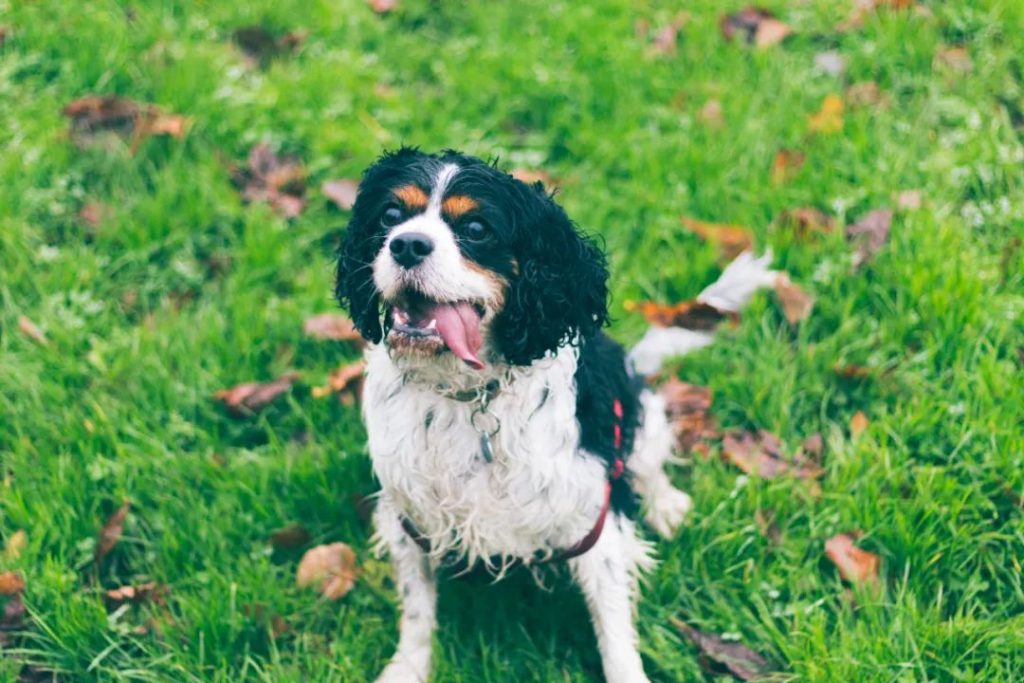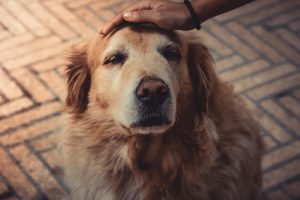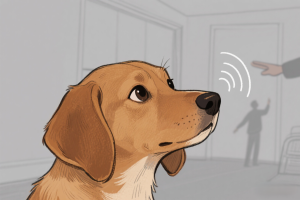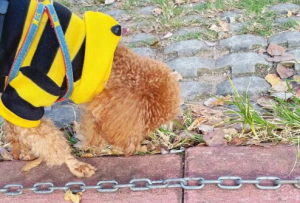A dog’s keen sense of smell and hearing are two of its greatest strengths. However, just like any sharp tool that gets used over time, even the most acute hearing can deteriorate as dogs age. When our beloved dogs lose their hearing, it can make them less responsive, potentially leading to a cascade of emotions, such as sadness, frustration, and confusion. While there’s no guaranteed way to restore hearing in senior dogs, there are several ways we can help them continue to live a normal and fulfilling life. Here are eight helpful tips for managing your dog’s hearing loss.
-
Consult a Veterinarian
To confirm that your dog’s hearing loss is due to ARHL (age-related hearing loss), it’s important to rule out other causes. If your dog also suffers from ear canal issues, such as foreign objects or infections, these can compound ARHL and potentially lead to complete deafness. Treating any ear conditions can help restore some level of hearing.
-
Train Your Dog with Hand Signals
When a dog experiences significant hearing loss, communicating through hand gestures will help provide a sense of security and strengthen the emotional bond between you. Dogs naturally communicate through body language, so they tend to quickly learn the meaning of hand signals. Ideally, hand signals and verbal cues should be introduced during puppy training. If your senior dog hasn’t yet learned to respond to hand signals, start the training process as soon as possible. Most older dogs can quickly learn these new cues.
-
Use Non-traditional Signals
In addition to hand gestures, you can find other ways to capture your dog’s attention. For example, try actions that create vibrations (clapping, stomping, tapping a can), using a flashlight, guiding them with smells (that they find appealing), or using a storm or emergency whistle. Experiment to find what works best for your dog. Once your dog responds to these new cues, reward them with something positive (their favorite treat, belly rubs, tug-of-war games).
-
Avoid Startling Your Dog
When you want to approach or touch your dog, it’s best to be in their line of sight. If you need to wake your dog from sleep, gently touch them in the same spot (shoulder is best) or use a familiar scent near their nose to rouse them. Remind visitors not to touch your dog while they are sleeping. This helps prevent startling them.

-
Stay Alert
Senior dogs with hearing loss are at risk of accidents, such as being hit by a car, so always make sure your dog is on a leash when outdoors. It’s also important to let anyone who interacts with your dog—friends, walkers, or sitters—know about their hearing impairment. This ensures that your dog is protected from potential harm.
-
Enhance Your Dog’s “Smell Life”
Dogs rely heavily on their sense of smell. When entering a new environment, dogs use their eyes to get an initial impression, but their nose fills in the details. As we know, scent stimulation affects canine behavior. By enriching your dog’s “smell life,” you can help compensate for the sensory deficits caused by hearing loss.
-
Label Your Dog’s Collar with “I’m Deaf”
Just in case your dog gets lost, adding a “Deaf Dog” tag to their collar can help well-meaning strangers understand why your dog may not be reacting to their surroundings.
-
Encourage Yourself
Interacting with an older dog can sometimes lead to feelings of frustration, sadness, or impatience. But remember, your dog can still sense your emotions. Take a deep breath, give yourself a pep talk, and work on restoring patience, empathy, and love for your furry friend.
As pet care standards improve, the bond between humans and dogs may be closer than ever before. Additionally, dogs that are afraid of loud noises, such as thunder, gunshots, or fireworks, are less likely to experience anxiety. With the love and care of their owners, even dogs with hearing loss can still enjoy a happy and fulfilling life.





